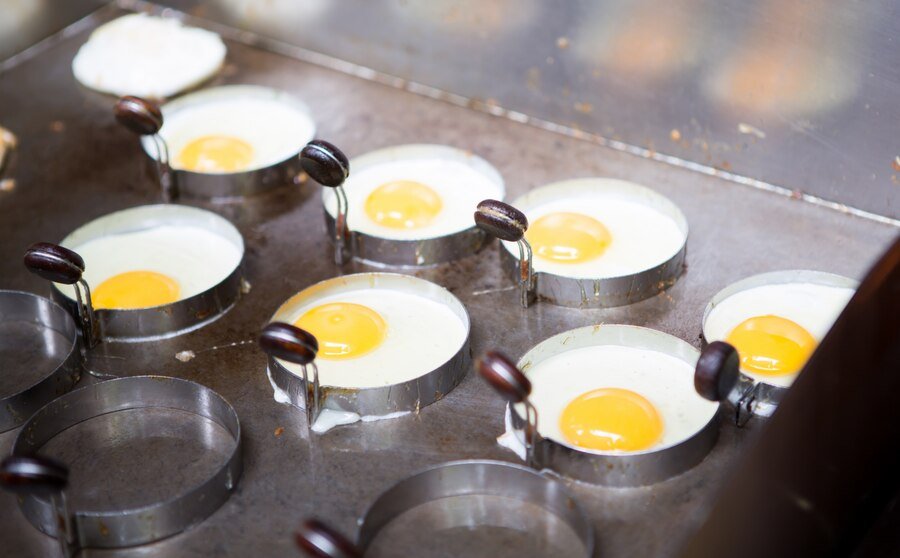Understanding the Egg Deleup Process: A Complete Guide

Egg deleup process is a deeply impactful process that has brought hope to countless individuals and couples struggling with infertility. By enabling the donation of eggs from one individual to another, this remarkable procedure provides a path for many to achieve their dream of having a child. If you’ve been curious about the egg donation process, this guide will walk you through everything you need to know—from the initial qualifications to the donation itself—while addressing the emotional, ethical, and legal aspects of this life-changing experience.
If you’re considering becoming an egg donor or recipient, this resource will give you a clear understanding of what to expect every step of the way.
What is Egg Donation?
Egg donation is a medical procedure in which a healthy woman donates eggs for reproductive purposes, allowing another individual or couple to use them to conceive a child. This process forms an essential part of fertility treatments and is often recommended for individuals with medical conditions, advanced maternal age, or specific fertility challenges that prevent them from using their own eggs.
Notably, the procedure has allowed thousands of people to grow their families, proving to be a source of hope and joy.
Who Can Become an Egg Donor?
Not everyone is eligible to become an egg donor. Fertility clinics and egg donation agencies maintain strict criteria to ensure the donor’s health and the success of the procedure. Here are some of the qualifications required to participate in the egg donation process:
- Age Range: Potential donors are generally between 21 and 35 years old. This age range is ideal due to higher egg quality and overall reproductive health.
- Physical Health: Donors should have no significant medical conditions and may need to meet specific Body Mass Index (BMI) requirements.
- Non-Smoking and Drug-Free: Donors must maintain a healthy lifestyle, free of smoking, recreational drug use, and heavy alcohol consumption.
- Family Medical History: A full medical history of the donor and their biological family is often reviewed to rule out hereditary diseases.
- Commitment to the Process: Participation requires time, effort, and strict adherence to medical instructions during the process.
Step-by-Step Guide to the Egg Donation Process
- Initial Application
Most egg donation journeys begin with an application, often submitted online. Potential donors provide personal details, medical history, and general information about themselves.
- Medical and Psychological Screening
If the application is accepted, donors undergo a thorough medical and psychological evaluation. This process ensures they are physically and emotionally prepared to donate.
- Legal Consultation
Both the donor and the recipient must sign a legally binding agreement, which protects their rights and provides clarity on all aspects of the donation process.
- Ovulation Stimulation Treatment
Donors undergo hormone treatments to stimulate their ovaries to produce multiple eggs. Daily injections may be required, and the process is closely monitored by medical professionals.
- Retrieval Procedure
When the eggs are ready, the donor undergoes a minimally invasive procedure under light sedation to retrieve the eggs.
- Recovery and Follow-Up
After the retrieval, donors typically require a short recovery period. Any post-procedure concerns are addressed through follow-up care.
Medical and Psychological Screening
The screening process is one of the most crucial parts of egg donation. Here’s what it involves:
- Physical Health Check: Includes blood tests, ultrasounds, and other assessments to ensure the donor’s reproductive health.
- Psychological Assessment: Evaluates the donor’s mental readiness for the emotional aspects of donating.
- Genetic Testing: Rules out potential hereditary conditions that might affect offspring.
Legal Considerations in Egg Donation
Legal agreements are essential to protect both the donor and the recipient.
- Donor Anonymity: Depending on the circumstances, donors may remain anonymous, or they may agree to future contact if mutually desired.
- Parental Rights: Donors relinquish parental rights to any offspring conceived using their eggs.
- Financial Compensation: Most donors receive financial compensation for their time and effort, which is outlined in the contract.
Having a lawyer who specializes in reproductive law can help clarify these terms and address potential concerns.
What Happens During Egg Retrieval?
The egg retrieval process is often quick and relatively painless. During the procedure, eggs are collected via ultrasound-guided aspiration under sedation.
- The process usually lasts about 20–30 minutes.
- Most donors can return home the same day but may need someone to accompany them.
- Recovery typically involves mild cramping or bloating, which subsides within a day or two.
Ethical and Emotional Considerations

Egg deleup process is a deeply personal decision that comes with its emotional and ethical dimensions.
- Donors may experience a range of emotions, from fulfillment to introspection.
- Some grapple with questions regarding the future identity and life of the offspring. Counseling support can help donors explore and work through their feelings.
- Ethical debates often center around compensation, donor anonymity, and the use of unused embryos.
Success Rates and the Future of Egg Donation
Egg donation significantly increases the chances of conception, with success rates often exceeding 50% when transferring a healthy embryo. Advancements in reproductive technology and research continue to improve these rates, offering brighter prospects for prospective parents.
For donors, the process typically has no long-term effects on fertility or hormonal health. Future innovations may also make the procedure more efficient and accessible globally.
Why Consider Egg Donation?
Egg donation is much more than a medical procedure—it’s a chance to make a profound difference in someone’s life. Whether you’re thinking of donating or looking into egg donation as part of your fertility journey, understanding the process is key to making an informed decision.
If you’re interested in starting your egg donation process or learning more, reach out to a trusted fertility clinic or agency today. Together, we can create possibilities for families to grow and thrive.




